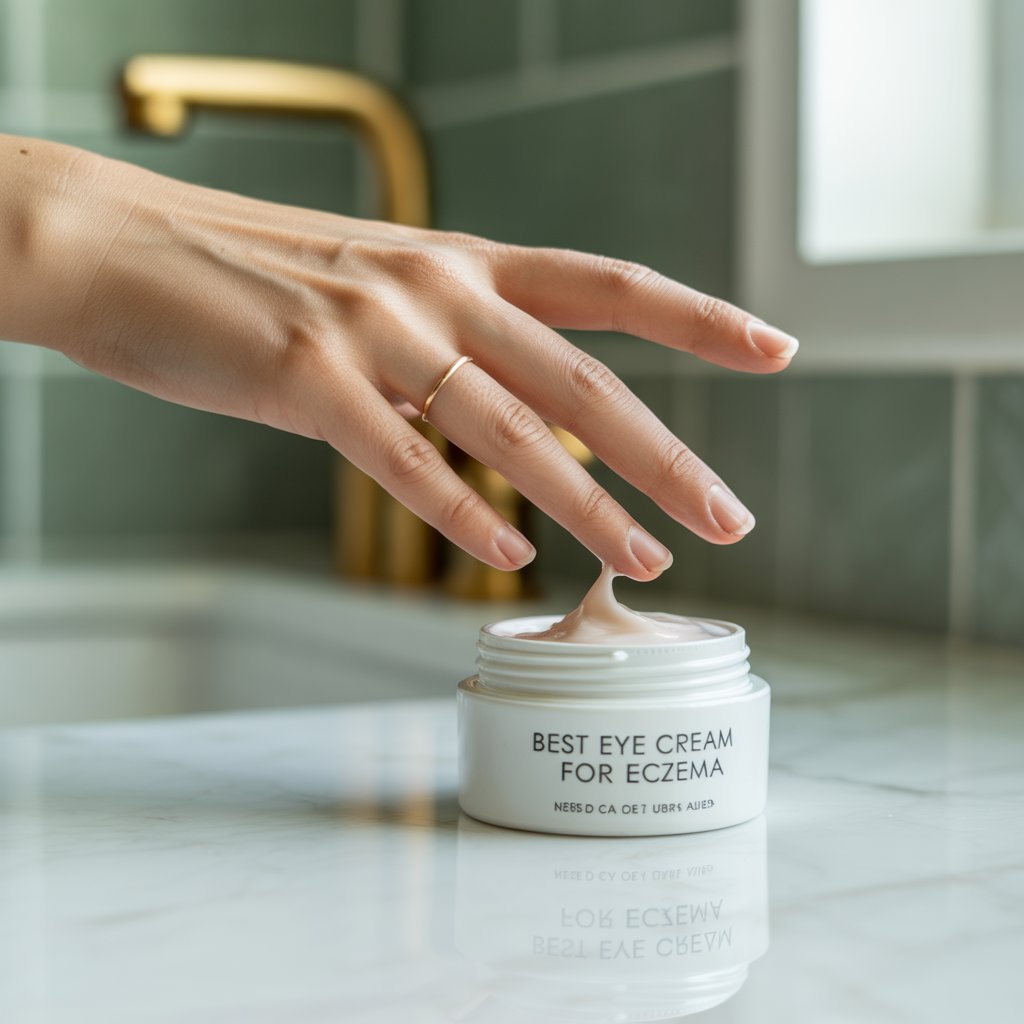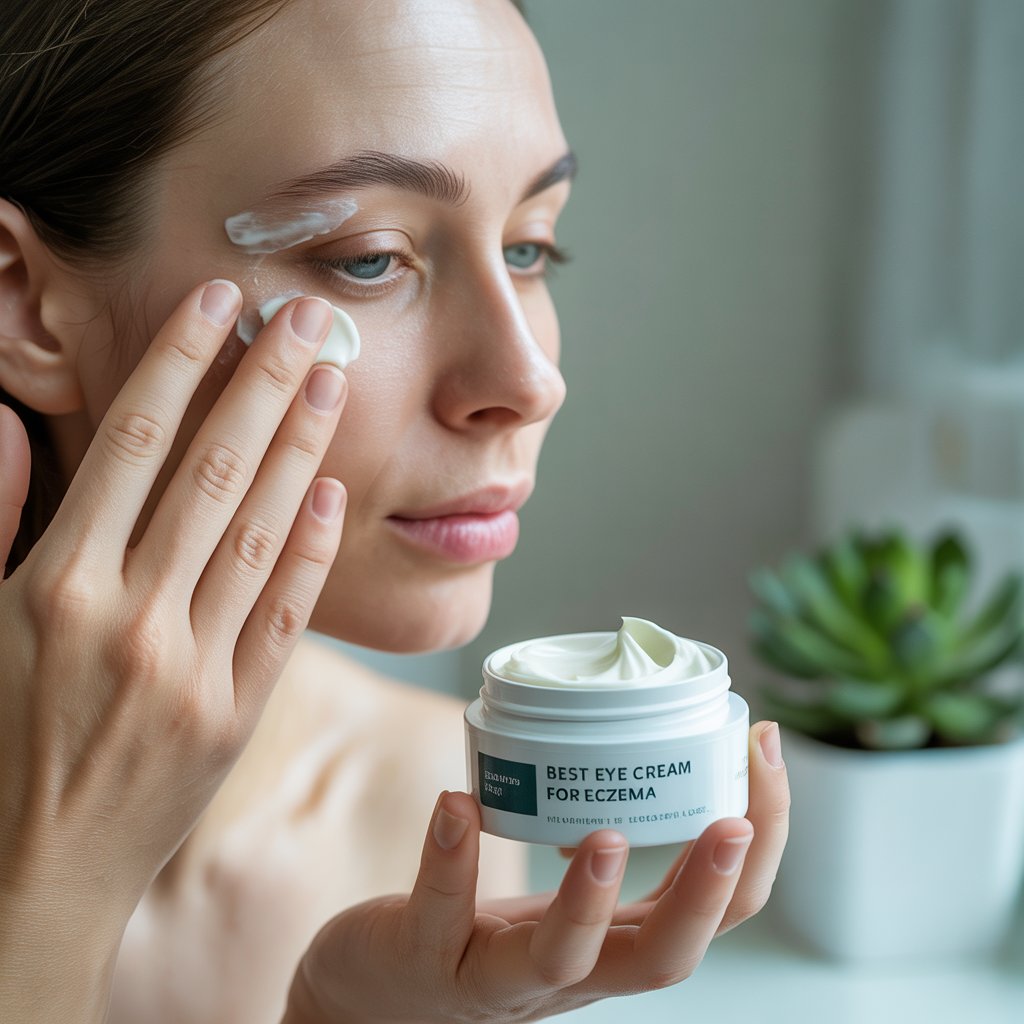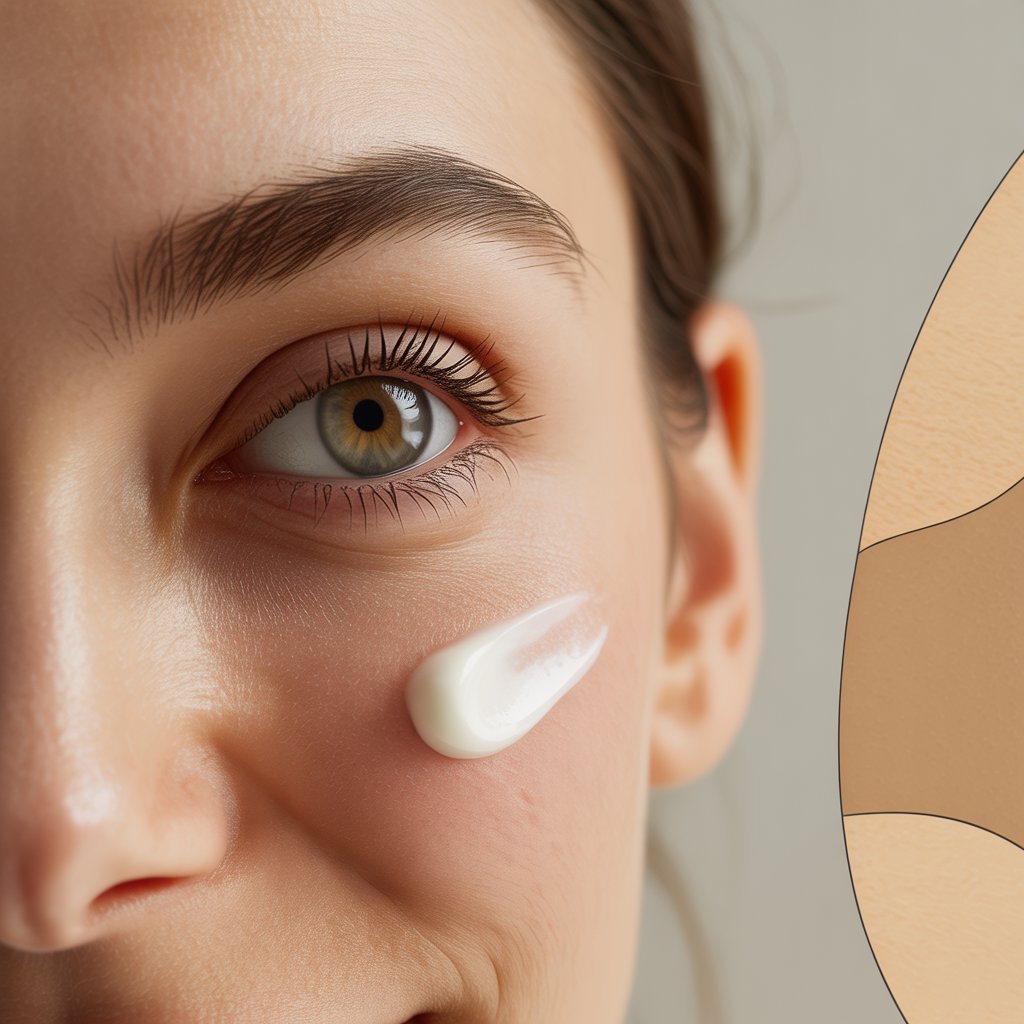Best Eye Cream for Eczema on Eyelids
Introduction
Eye Cream for Eczema on Eyelids: If you’ve ever struggled with red, itchy, or flaky eyelids, you know how uncomfortable and frustrating it can be. This condition, often caused by Eczema on the Eyelid, affects one of the most delicate areas of the body. Unlike the skin on your arms or legs, eyelid skin is extremely thin and sensitive, which makes treating eczema here especially tricky. Regular face creams or harsh ointments can cause more irritation than relief, leaving you desperate for a solution that actually works.
That’s where the right eye cream for eczema on eyelids comes in. Choosing a gentle, dermatologist-approved cream designed for sensitive skin can make all the difference. The right product won’t just soothe irritation—it will hydrate, repair your skin barrier, and prevent future flare-ups.
In this in-depth guide, we’ll explore what eyelid eczema is, why it’s difficult to manage, the ingredients you should look for (and avoid), and the best eye creams recommended by dermatologists. By the end, you’ll have a clear path to healthier, more comfortable eyelids.

Understanding Eye Cream for Eczema on Eyelids
What is eyelid eczema?
Eyelid eczema is a form of dermatitis that specifically targets the thin skin around your eyes. It often shows up as red, inflamed patches that can cause constant itching and discomfort. Unlike ordinary dryness, eczema involves both a weakened skin barrier and an overactive immune system response, which means flare-ups are more intense and harder to manage.
Because eyelid skin moves constantly as you blink, smile, or rub your eyes, the irritation tends to feel worse here than on other parts of your body. Left untreated, eyelid eczema can lead to swelling, infections, and even changes in skin texture over time.
Common symptoms of eyelid eczema
-
Persistent itching and irritation
-
Redness and inflammation around the eyelids
-
Dry, flaky, or peeling skin
-
Swelling and puffiness that make eyes look tired
-
Burning or stinging sensations after applying skincare or makeup
-
Thickened, rough skin from repeated flare-ups
Causes and triggers behind eyelid eczema
Eyelid eczema often develops from a combination of environmental triggers, allergies, and genetics. Common culprits include:
-
Allergens like pollen, dust mites, or pet dander
-
Harsh skincare products with fragrance, alcohol, or preservatives
-
Weather changes (especially cold, dry climates)
-
Stress, which weakens your skin’s defenses
-
Underlying conditions like atopic dermatitis or seborrheic dermatitis
Since eyelid skin is highly sensitive, even a small amount of irritant can cause a flare-up. That’s why selecting products that are formulated for sensitive, eczema-prone skin is so important.
Challenges of Treating Eye cream for Eczema on Eyelids Around the Eyes
Why eyelid skin is more sensitive
The skin on your eyelids is about five times thinner than the rest of your face. With fewer oil glands to naturally moisturize the area, eyelids are prone to dryness and irritation. This makes them especially vulnerable to eczema flare-ups. Even products that feel gentle on your cheeks or forehead can cause burning or stinging when applied to your eyelids.
Risks of using regular creams on eyelids
Most moisturizers are not safe for use near the eyes. Many contain fragrances, alcohols, or preservatives that can trigger eczema flare-ups. Thick or greasy creams may also migrate into your eyes, leading to burning, watering, or blurred vision. Steroid creams, while sometimes prescribed, carry long-term risks such as glaucoma or cataracts if used incorrectly.
Importance of choosing the right eye cream
To safely manage eczema around the eyes, you need a product that is:
-
Hypoallergenic and fragrance-free
-
Dermatologist- and ophthalmologist-tested
-
Lightweight yet deeply hydrating
-
Free from common irritants and harsh preservatives
Choosing wisely not only soothes existing irritation but also prevents future flare-ups, helping you maintain long-term comfort and healthy skin.

Key Ingredients to Look for in Eye Creams for Eczema on Eyelids
Moisturizing agents (Hyaluronic acid, Glycerin, Ceramides)
Hydration is the foundation of eczema care. Ingredients like hyaluronic acid and glycerin attract water to the skin, while ceramides repair the skin barrier and lock in moisture. Since people with eczema often have a deficiency in ceramides, using an eye cream that replenishes them can dramatically improve skin health.
Calming ingredients (Aloe vera, Chamomile, Oat extract)
Inflammation and itching are major symptoms of eyelid eczema. That’s why soothing ingredients are key. Aloe vera cools burning skin, chamomile reduces redness, and colloidal oatmeal relieves itching naturally.
Barrier-repairing ingredients (Shea butter, Squalane)
Your skin barrier acts as a shield. When it’s damaged, allergens and irritants can easily penetrate, causing flare-ups. Shea butter and squalane provide a protective layer that strengthens your barrier while keeping moisture locked in.
Ingredients to avoid (Fragrance, Alcohol, Harsh preservatives)
When it comes to eyelid eczema, some ingredients should never touch your skin. Avoid:
-
Fragrance and parfum (a common irritant)
-
Alcohol-based formulas (drying and harsh)
-
Essential oils like peppermint or lavender (too strong for eyelid skin)
-
Parabens and preservatives that can worsen sensitivity
Top Dermatologist-Recommended Eye Creams for Eczema on Eyelids
CeraVe Eye Repair Cream
A dermatologist favorite, CeraVe’s Eye Repair Cream uses ceramides and hyaluronic acid to restore the skin barrier while delivering deep hydration. It’s lightweight, fragrance-free, and safe for daily use.
Aquaphor Healing Ointment
While not marketed as an eye cream, Aquaphor is excellent for severely dry or cracked eyelids. It creates a protective seal that locks in moisture and shields against external irritants. Best applied at night.
Vanicream Moisturizing Ointment
Formulated for ultra-sensitive skin, Vanicream is free from dyes, parabens, fragrance, and preservatives. If most creams irritate your eyelids, this is one of the gentlest options available.
La Roche-Posay Toleriane Ultra Eye Cream
This cream combines niacinamide with soothing thermal spring water, making it perfect for calming irritation while keeping eyelid skin hydrated and smooth.
Avene Soothing Eye Contour Cream
Designed for sensitive and allergy-prone skin, this cream reduces puffiness and redness while providing gentle hydration, making it ideal for daily use.

FAQs – Best Eye Cream for Eczema on Eyelids
1. Can I use hydrocortisone eye cream on my eyelids for eczema?
Yes, but only under medical supervision. Overuse near the eyes can cause serious side effects like glaucoma or cataracts. Always consult a dermatologist first.
2. Is Vaseline safe for eyelid eczema?
Yes, plain Vaseline (petroleum jelly) is considered safe. It creates a protective barrier and locks in moisture, though it may feel greasy for daytime use.
3. How long does it take for eye cream to improve eczema?
Mild cases may improve within a week, while more severe eczema can take several weeks of consistent treatment.
4. Can diet affect eye cream for eyelid eczema?
Yes. Foods like dairy, gluten, and nuts may trigger flare-ups in some people. Eating an anti-inflammatory diet rich in omega-3s and antioxidants may help reduce symptoms.
5. Can I wear makeup with eyelid eczema?
Yes, but choose hypoallergenic, fragrance-free, and ophthalmologist-tested makeup. Always remove it gently with a mild, non-irritating cleanser.
Conclusion
Eyelid eczema may be stubborn, but with the right care, you can manage it effectively. The key is to use eye creams formulated for sensitive, eczema-prone skin, focusing on ingredients that hydrate, repair, and soothe without irritation. Options like CeraVe Eye Repair Cream, Aquaphor Healing Ointment, Vanicream, La Roche-Posay Toleriane, and Avene Soothing Eye Contour Cream are trusted by dermatologists for good reason—they work without causing harm.
Remember, managing eyelid eczema is not just about soothing flare-ups but also about preventing them. Stick to a gentle skincare routine, avoid known triggers, and when in doubt, seek professional help. With consistency and the right products, you can restore comfort and confidence to your delicate eye area.
